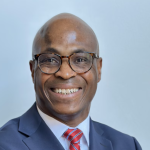By Denisha Allen
This month marked the 70th anniversary of the Brown v. Board decision, when the U.S. Supreme Court ruled school segregation as unconstitutional. It is no surprise we’ve yet to achieve the full vision of Brown v. Board. However, scars borne from Brown are healing thanks to education freedom.

As a longtime advocate for school choice, I’ve seen firsthand the lingering impact of well-intended but flawed policies. Brown’s mandate for desegregation stripped away much of the Black leadership in our schools. Thousands of Black teachers and administrators who were pillars in their communities found themselves without classrooms or were demoted. This loss was profound, affecting more than just those educators; it disrupted the mentorship and representation that is critical for young Black students.
Today, there have been a number of research studies that speak to the benefits of Black teachers for Black students.
Growing up, I saw the impacts of having Black leadership in my community. Teachers who looked like me, who could share in my experiences and understand my challenges, were rare.
I struggled in my traditional public school. But then I went from making D’s and F’s to A’s and B’s because of a Black-founded private school I was able to attend on a school choice scholarship.
This isn’t just my story, but a common thread in the narratives of many Black families, where schools often feel punitive rather than like places of learning and growth. This is why I am so passionate about school choice today. It’s more than just a policy preference—it’s a lifeline. It’s about putting the power back into the hands of parents and communities to choose schools that not only offer high academic standards but also embrace and reflect our cultural heritage. School choice is helping us rebuild what was lost over decades.
In 2020 I founded Black Minds Matter, where we maintain the only directory of Black founded schools in the country. To date we have more than 500 schools in the directory led by Black school leaders who are changing students’ lives.
I’m proud to be an advocate of a growing movement of Black school founders who are rising up and creating spaces where our children are not just seen and heard, but where they thrive. We’re not just filling gaps; we’re constructing new pathways of success that resonate with our community’s needs and aspirations. Every day, I witness talented educators determined to make a difference. I am inspired by the resilience of our communities and the drive that our children deserve the best.
School choice has given Black education entrepreneurs the opportunity to lead by example again—to show that schools can be more than just places of learning. They can be safe havens that celebrate our identity and empower our children. In these schools, our students see leaders who look like them, who share their experiences and who champion their success. This representation matters. It rebuilds the trust that was eroded by years of policies that, though well-meaning, often missed the mark on what our children need to succeed.
The rise of Education Savings Accounts (ESAs) and the expansion of charter schools, homeschooling and online learning have all contributed to a broader and more accessible educational landscape. These developments are crucial, offering quality education to students who might otherwise lack access. For instance, the Black Mothers’ Forum in Arizona is using ESAs to establish microschools, helping to break cycles of generational poverty and combat the school-to-prison pipeline.
As we move into 2024, the momentum of school choice is only increasing. It’s creating fertile ground for further innovation in education.
In reflecting on Brown v. Board, I acknowledge the doors it opened, but I also see the paths it unintentionally closed. But, today, thanks to school choice, we are not just choosing schools—Black educators are creating schools where Black students have a future to become leaders, innovators and changemakers.
This isn’t just about education; it’s about empowerment. It’s about reclaiming our narrative and ensuring that our children have the tools to write their own success stories. As we continue to build and support schools that serve our communities, we honor the true spirit of what Brown v. Board aimed to achieve—a truly equitable and vibrant educational landscape for all.
The post How school choice is healing the scars left by Brown v. Board appeared first on AFRO American Newspapers.










